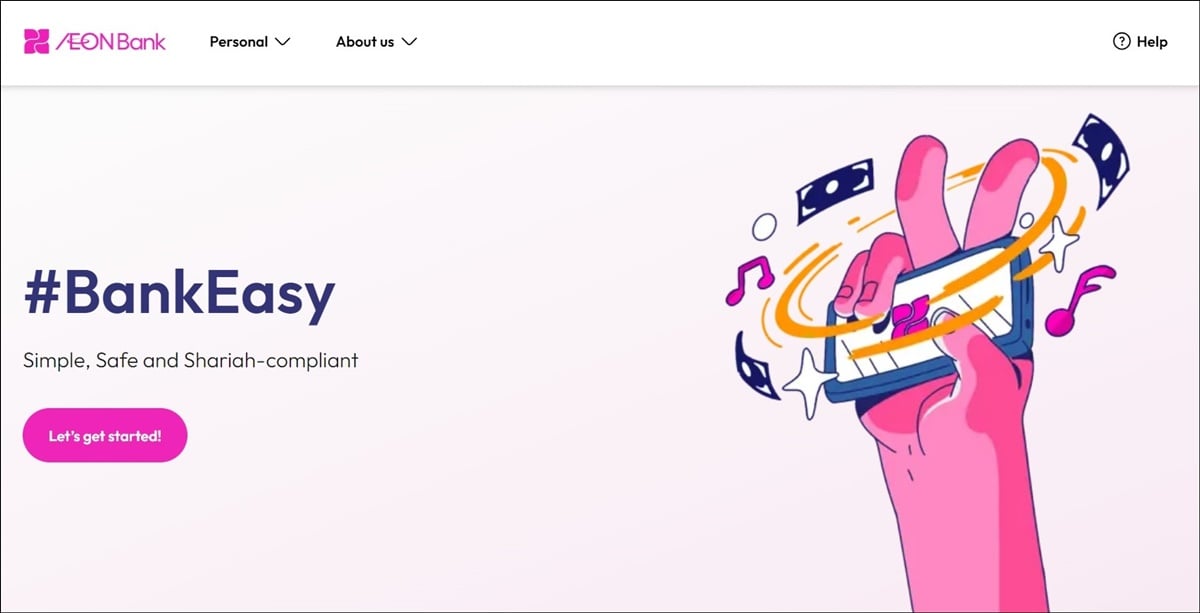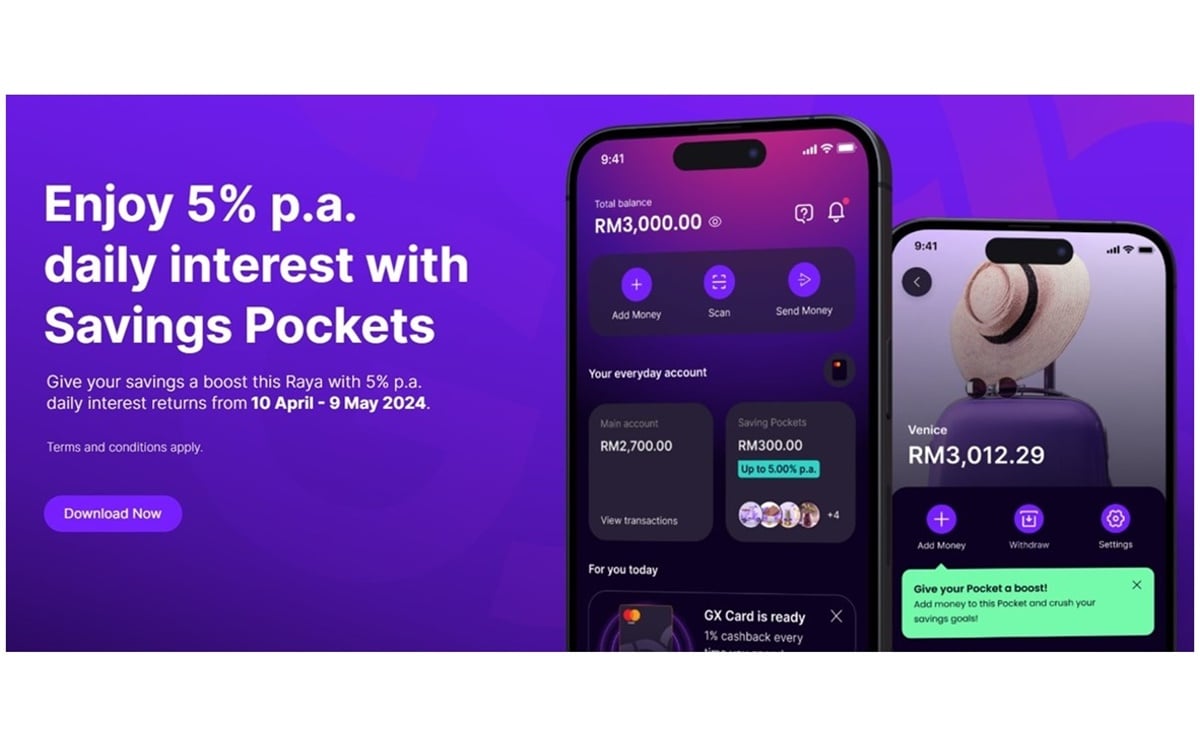ringgitplus
10th January 2014 - 10 min read

Instead of saving your money in a normal savings account where you earn merely peanuts, why not put some of that money into a low risk fixed deposit account where it will help you earn much more substantial gains?
In Malaysia, we practice a dual banking system, so naturally, we would have two types of fixed deposits: Conventional and Islamic.
It is a fixed term
Firstly, fixed deposits, as its name suggest, is a deposit account where you place an initial opening balance for a fixed period of time. Most banks in Malaysia offer a term as short as one-month, or as long as 5 years.
As it is a fixed term, the general rule is that you cannot withdraw your money until your investment has reached the date of maturity, where your principal deposit will be repaid to you along with the interest earned. So when you select a tenure for your fixed deposit, be sure that the money is not going to be needed for that period of time in order for you to maximise your profits.
Of course, if you really really really…really need the money, then you can request from the bank for an early withdrawal, but more about that later.
On interest rates and tenure length
The shorter the tenure, the lower your interest rate will be. This is to encourage you to keep your money with the bank longer. Comparing a month’s tenure to one that’s locked-in for a year; the difference can range from 0.15% p.a. to 0.4% p.a. on average. It may not seem like much when you look at it but can make a real difference if you have a significant amount of money and you wish to keep it in the deposit account for a long time.
A degree of flexibility
You may wonder, what flexibility? Well, some banks do allow you to withdraw some of the cash in the fixed deposit before it matures. Yes, you can partially cash out some of the money in your fixed deposit account without forfeiting your interest on the whole sum. What this means is:
- you don’t have to terminate the account in order to access some money;
- you don’t have to wait until the fixed deposit has matured to withdraw the money;
- you can continue to earn interest on the remaining balance;
- you may even get a portion of the interest on the cash you have withdrawn.
Generally, the banks will entitle you to 50% of the quoted interest if you have completed at least three (3) months of your tenure at the time of withdrawal. Of course, like everything else, this will be subject to the bank’s terms and conditions.
If you have signed up for a fixed deposit product without this added flexibility, you still can terminate your fixed deposit early if you really need but it is not advisable as you may end up forfeiting ALL of the potential interest.
Automatic FD renewal
Most fixed deposits allow automatic renewals. The bank will automatically renew your fixed deposit under the same terms together with the principal amount plus the interest earned if:
- you don’t cash out the fixed deposit on maturity;
- you have not given specific instructions to the bank on what happens after maturity. The good news is the bank will notify you in writing when this happens.
This rollover feature can be both convenient and cumbersome. If you have selected a short tenure and have no intention of visiting the bank every few months, it would be beneficial. On the flipside, if you have selected a 5-year tenure, you will have to wait for another 5 years in order to cash out without forfeiting the interest if you have somehow forgotten to withdraw on maturity date. That is the frustrating part!
Keep your certificate safe
When you sign up for a fixed deposit, the bank will issue a fixed deposit certificate/statement in return. On the document, there is information regarding the principal amount, the placement period, and the agreed interest rate as well as the maturity date.
You can only withdraw your money or terminate your account by presenting the certificate, so do keep the certificate safe. If you lose it; you must inform the bank as soon as possible. The bank will issue you a new receipt upon verification. Of course, it is NOT free! You will be charged stamp duty of RM10 and service fee or RM5-15 once again!
Linked financial products
As of late, banks have started to link other, usually more complex investment products to fixed deposit accounts where you will stand a chance to receive attractive returns. But bear this in mind; you will have to purchase a unit trust or invest in gold in equal amounts. The interest rate will entice you, but it is NOT guaranteed!
These kinds of add-on products are usually all too risky as the price of unit trust and gold will fluctuate daily and sometimes very widely. How much your return is, is based on the capability of your fund manager, the fund itself, and volatility in financial markets. If you have little idea about these products, best to stay away from fixed deposits of this nature.
Now that you have some basic understanding about how a fixed deposit works, let us delve into the minute details that will help you avoid the common pitfalls often associated with fixed deposits, and in turn, your savings and current account.
Spread your eggs in different nests
Most fixed deposit accounts are eligible for protection by Perbadanan Insurans Deposit Malaysia (PIDM). This means your deposit is insured against loss in the event of the bank shuts down or mismanages your money. It is free and your deposits are automatically protected for up to RM 250000 per person per bank. The RM 250000 limit includes both the principal amount and the interest. Therefore, we would advise that you limit each fixed deposit to a maximum of RM 250000 or less per bank and spread your risks with different banks. This is called diversification, even if it is within the same investment type.
Not all banks are members of PIDM. Financial institutions like MBSB, Bank Rakyat, Agro Bank and BSN are not covered. However, these 3 banks are regulated by both Bank Negara Malaysia (under the Development Financial Institutions Act 2002) and Suruhanjaya Koperasi Malaysia (under the Cooperative Societies Act 1993), so you get direct protection from our Ministry of Finance instead.
Dormant accounts
A dormant account is an account with no recorded transactions (deposit or withdrawal) continuously for a period of time. Bank Negara has decided that all dormant accounts shall be categorised under Unclaimed Moneys and any balance in this account will be transferred to the Registrar of Unclaimed Moneys in accordance with the Unclaimed Money Acts 1965. In short, your money will be gone if it is found that your account is inactive for some time.
In the realm of fixed deposits, if the product has an auto renewal feature, you will be given a 7 year buffer before the account is declared dormant. (Bank Negara does not encourage you to sign-up for an auto-renewing 5 year tenure FD) However, if the fixed deposit has NO auto renew feature, your money will go to the government if the bank does not hear from you in 12 months from the maturity date. So remember to mark an X on you calendar!
The good news is that the bank will notify you via snail mail when your account becomes dormant. The bad news is you have to pay fees to reactivate it. The bank charges RM 10 per year as service fee. If your money ends up in the Unclaimed Moneys department, you can write to Jabatan Accountant Negara Malaysia and request for it, if there is any left!
The bank has the right to pay itself
The bank has the right to set-off, consolidate and to debit. These rights gives the bank authority to consolidate all your accounts, and the right to debit any account that is deemed fit. Meaning, if you have outstanding payments to the bank, the bank has the right to debit from your fixed deposit to pay off your debt. Likewise, if the bank owes you money, they have the right to automatically credit the money into your account.
Islamic Investment account
In general, Islamic banks have many products similar to those offered by conventional banks. However, conventional banks have a liability to pay back the principal together with the interest earned even if the bank lost money on an investment. In Islamic banking, that isn’t the case. The bank is contracted by you as your agent to invest on your behalf. Any profits earned are shared between you and the bank according to the pre-determined profit sharing ratio. The profit on the investment is not guaranteed, leaving you open to the risk of losing all of your capital.
Like any investment, you may encounter two types of risk: market risk and income risk.
You encounter market risk when and if there are losses arising from the investment as it shall be borne by you; unless it is proven that the bank has mismanaged the fund.
Income risk is when the profit earned may vary from the published rate as what you earn solely depends on the rate of return of the investment.
Of course, all banks, whether conventional or Islamic, are concerned about their investment performance; so they will strive to find the most secure (as secure as investments can be) and profitable portfolio for your money. After all, both you and the bank stand to profit.
To rollover or not to roll over, that is the question
You may wonder if it is wise to place a short-term deposit and have it roll over or to sign up for a longer term to earn higher interest. Here are some rough calculations based on a fixed deposit of 1 month (at 3% interest) and 12 month (at 3.40%) tenure.
Let’s say Mr A decides to deposit RM5000 into a fixed deposit account which offers the rates mentioned above. If Mr A places his fixed deposit for 1 month at a rate of 3% and continuously let it roll over for one year, he will earn RM150 in interest. As banks usually offer higher rates for longer tenures, the same RM5000 in a deposit account with a 12 month tenure at 3.40% interest will earn RM170 in interest. The difference between the two is RM20 but that is also because the interest rate is 0.40% higher for the 12 months placement. Doesn’t seem like much does it? Of course if you have more money kept in the account for a longer time, this will be more.
If the interest rate for 1 month and 12 months are the same, then the difference will vary even less.
At the end of the day, it is most important that you are comfortable with your savings and how much flexibility you need when choosing the right tenure. There are tons of fixed deposit accounts to choose from, so the time taken for researching and comparing interest rates and terms and conditions is crucial.
Tip 1: Spread your savings into three parts, using the 3:3:4 or 4:4:2 ratio. 30% of savings in Savings account, 30% in short term fixed deposit and 40% in mid-long term deposit. On festive months, you can change the ratio to 4:4:2.
Tip 2: Try to place the fixed deposit before credit card repayment due date so in case you reward yourself that month with some retail therapy, you will have enough time to cash out on your short term deposit to pay for your credit card bill.








Comments (0)